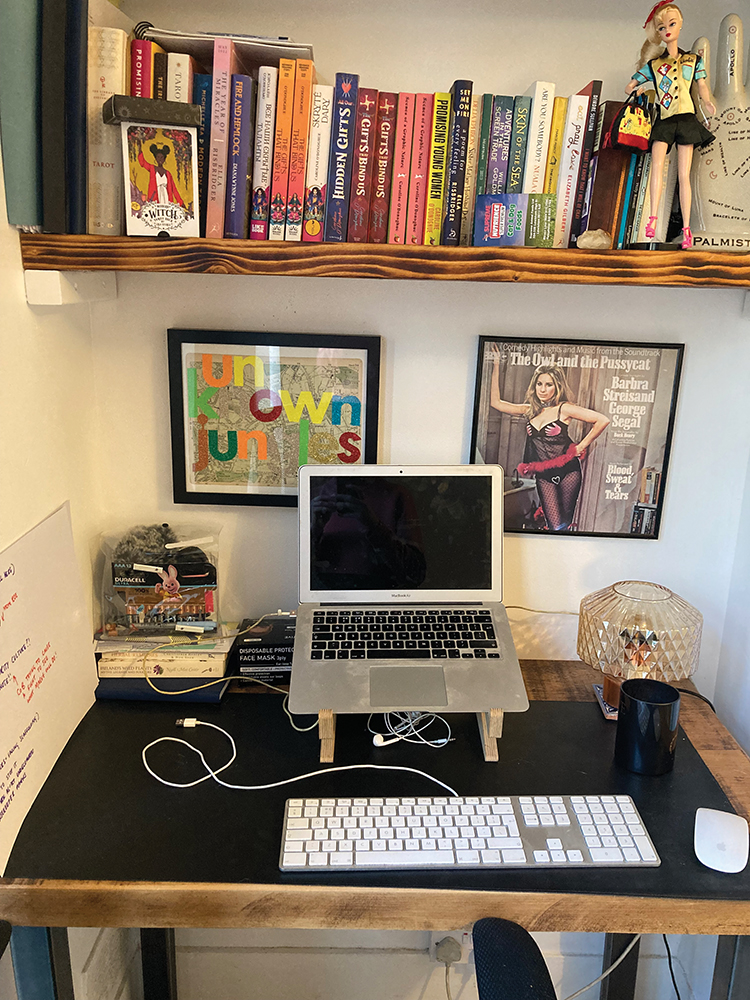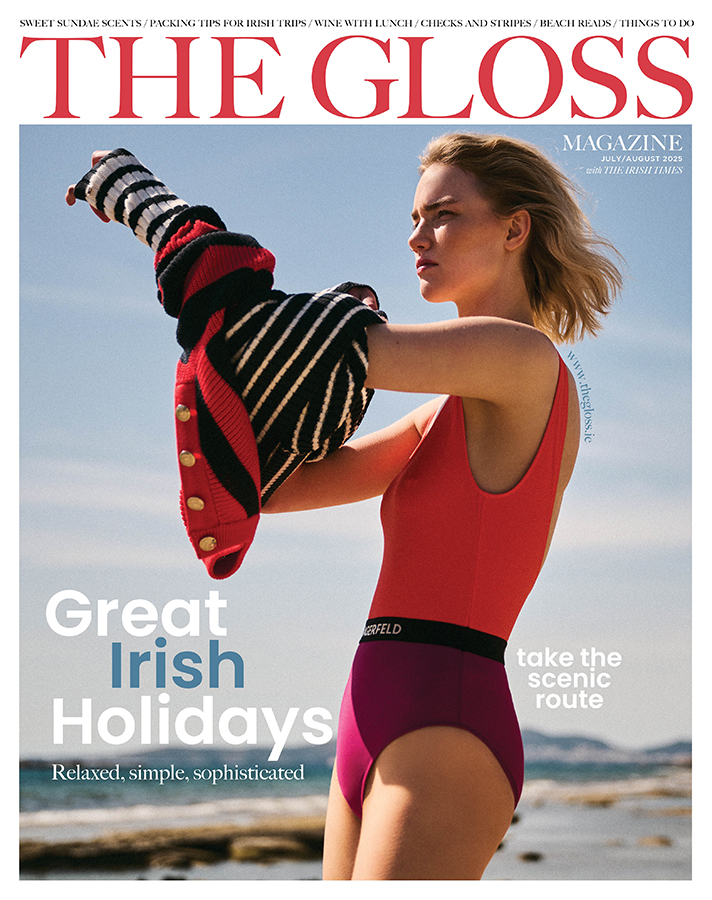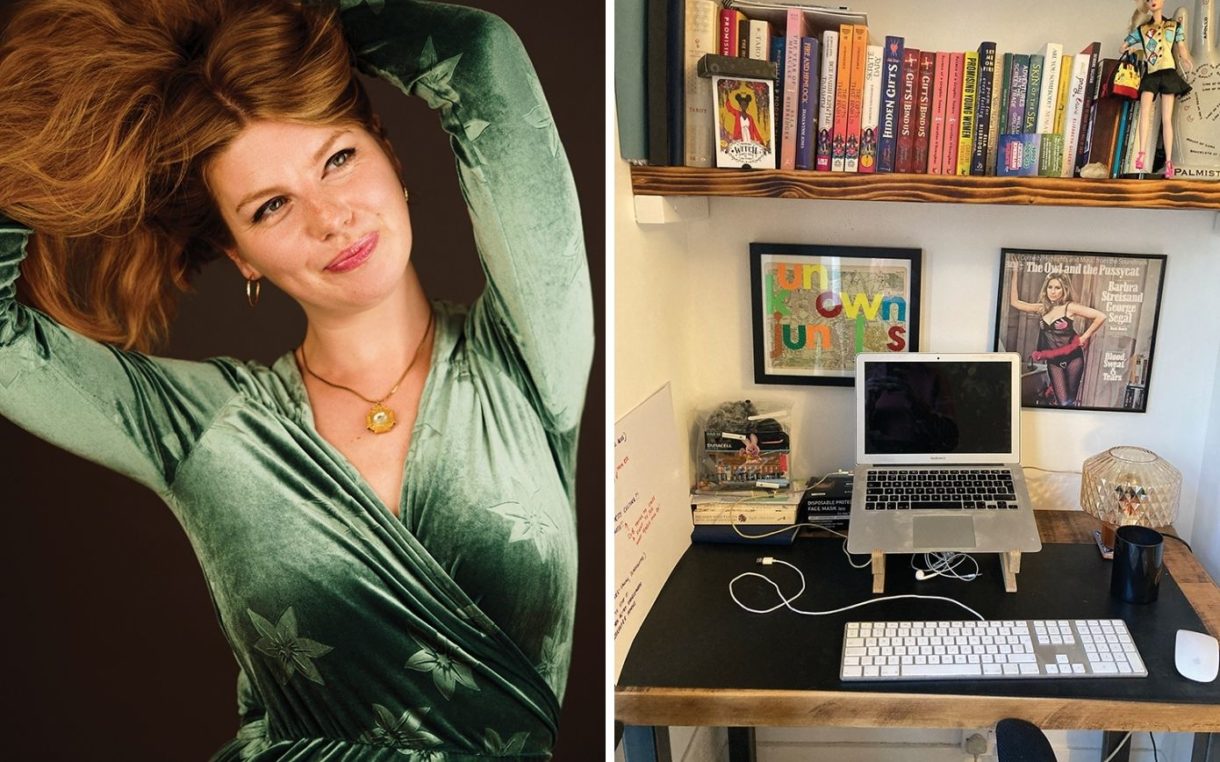Author Caroline O’Donoghue describes her neighbourhood and her writing day …
Caroline O’Donoghue is a London-Irish author, journalist and host of a podcast called Sentimental Garbage. She has contributed to numerous publications including The Times, The Irish Times, Buzzfeed and Vice. Her 2018 debut novel, Promising Young Women, was shortlisted for the Irish Book Awards’ Newcomer of the Year and the Kate O’Brien Award. She followed it with novel, Scenes of a Graphic Nature, which was longlisted for the Ondaatje Prize, before branching into YA fiction with the Gift series. Set in the fictionalised town of Kilbeg, O’Donoghue drew on her own childhood and teen years in Cork for All Our Hidden Gifts and The Gifts That Bind Us, based on a group of teenagers who let magic and a good bit of mayhem, into their lives. She lives in London with her partner and beloved terrier, Sylvie. She describes her neighbourhood and her writing day …
ON HOME I live in a little rented house in South East London that is slightly too far from the centre of town to have people visit for dinner, which is fantastic, because I hate entertaining. Me and Gavin moved here during Covid because we both needed an office, and because the dog needed a garden. Which, in a sense, is her office. I work in the dining room, Gavin in the spare room upstairs.
ON MY DESK On my desk I have water I will forget to drink and a candle burning. I’ve recently got into the habit of having a “morning” candle and an “afternoon” candle. One is more floral and linen, the other is more amber and wood. It’s a ritual now, the changing of the guard on the candles at 4pm.
ON ROUTINE I wake up between eight and nine, turn the heat on, and take the dog for a short walk. We come back, and I start writing. The dog sleeps in a basket until about two, which is usually when my friend Ella comes over, and then we go for another walk. The area is residential enough that there is a surplus of parks and graveyards. Every day I read the tombstone of a young lieutenant in the British Army who was killed in 1920 in Dublin, while “serving King and country”. I’ll say to Ella, tugging at her sleeve. “That was the War of Independence – he must have been a Tan.” Ella will apologise, very gamely, on behalf of the British Empire. We head our separate ways. I try to get back to work, but the fight has usually gone out of me. Sometimes I go for a swim at the local leisure centre, which is pretty poorly appointed but always makes me feel clean and strong and like I’ve just escaped from a chemical testing lab.

ON WRITING I have written six books: four on the shelves, two in the pipeline. The already-published four are two adult novels and two young adult fantasy novels. I’ve been much happier in my writing life since it became segmented like this: all the magic and supernatural stuff goes down one channel, and all the real-world stuff goes down another. People often ask if it’s hard to tone-switch between two genres. The only thing I can liken it to is friendship: you know how you have some friends that you are very silly with, and it’s all insane text threads and bi-annual dinners, and you forget the details of your life when you’re with them? And then other friends who you see all the time and who know about the intimate details of not just your life, but your siblings’ lives? It’s a bit like that. I would be lost without either friendship.
ON ROOTS I grew up in Cork. People from Cork are supposedly obsessed with talking about Cork, which makes it difficult to talk about Cork. I will say this though. Cork is goth. Galway is pretty, Belfast is fun, Dublin is Dublin. And Cork is goth. We have a strangely robust metal scene, and have always over-indexed on head shops, black-and-red striped clothing options, and public skateboarding. It was like that when I was growing up, and it’s like that now. I’m sure there are many ambient cultural reasons for this, but I think it’s the light. The light in Cork city is unlike anywhere else in the world, and you have to go everywhere else because you can come back and appreciate it. Thanks to the water, there’s a gloomy blue underneath everything in Cork, like veins under a white wrist, or the cast on a duck’s egg. I think Cork is why I write magic goth books for baby goths. I think the blue light shines through onto everything I write for teenagers, because this is how I spent my teens – walking through the city with cold breath, loud music, and water everywhere.
ON READING I just finished reading Maeve Binchy’s Light a Penny Candle. I still can’t believe how good Maeve Binchy is sometimes, how funny and warm and yet so frequently devastating. I sense there’s another layer to it too: the notion that she was writing about women of my grandmother’s generation, about a small-town conservative Ireland that no longer really exists, and it feels like a peculiar kind of escapism. Escapism for somewhere that your mother escaped from, and that you never really had to think about. Other things I’ve been enjoying: Just by Looking at Him by Ryan O’Connell, Love in the Big City by Sang Young Park, Heiresses by Laura Thompson.
ON WHAT’S NEXT I have an adult book coming out in 2023 as well as the last title in the Gifts trilogy. I managed to write two books in lockdown, which really annoys people, but I’m compensating this year by doing as little work as possible.
In conversation with Orna Mulcahy.
LOVETHEGLOSS.IE?
Sign up to our MAILING LIST now for a roundup of the latest fashion, beauty, interiors and entertaining news from THE GLOSS MAGAZINE’s daily dispatches.






